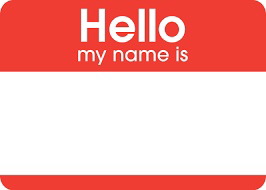The famous line from Romeo and Juliet
“What’s in a name? That which we call a rose
By any other word would smell as sweet.
So Romeo would, were he not Romeo called,
Retain that dear perfection which he owes
Without that title”
is one of the most quoted lines when we think about the power of names and what we call objects are people. I agree and disagree with Shakespeare, indeed a rose does smell as sweet no matter what we call in in any language – ورد – la rose – una rosa – ar rós; but a rose is a rose because that is the name it was given were we to call it a Lilly there would be much confusion. I am returned to a conversation had nine years ago over lunch at the University of Sussex after a class on the meaning of social constructivism. We were debating the name given to a ‘mug’ and how name and function become one the same. We contemplated creating another word that our group would attempt to apply to the object used for consuming tea or coffee, but after a week’s trial we shelved it as a failed experiment. The reason was that we would have had to convince everyone around us and whom we interacted with to use the same word.
I am reminded of this issue of naming objects or in my specific discussion case people, in my attempt to understand the cultural practice of adopting a different name. What I refer to is the cultural custom where an individual gives themselves a name which they consider to be more culturally ‘appropriate’ to the context they find themselves in. I know how this transpires as I have been a participant in it. Aged 10 growing up in Sudan a military Islamic government had taken hold and the society was awash with Islamic symbology. I had lived there for 6 years already without feeling any necessity to be referred to by anything except the name given to me at birth. But I was a stubborn child on the verge of adolescence and I was determined to be a part of the wave sweeping the country – how naive I was. I selected a name I considered more appropriate and required everyone to call me by that name. We left Sudan when I was 12 and the name remained there a symbol of those 2 years of change and turmoil for the country – one from which it has not yet recovered. I have been back three times since leaving aged 12 and everyone always refers to me as Siobhán and not by the name I choose for those final two years.
I use my own memory to raise the question that has intrigued me since first going to China in 2000 and especially the past two years having a large number of Chinese students in my courses at UBC. An ‘English name’ would appear to come hand in hand with speaking the language. Despite several attempts to encourage students to educate me in the pronounciation of their names, their insistence remains on the use of their ‘English name’. I find it a prohibitive process when grading assignments to associate a face with an official name and with an ‘English name’. Do not misunderstand and think that I am critiquing the practice, I am endeavouring to comprehend it. How do my students feel being referred to by different names depending on the context? Does it change their approach or behaviour? I contemplate this on a daily basis. I would encourage you to share your experiences here or privately with me via email siobhan@pluralityspeak.com


Thanks for sharing your reflection. A slightly different perspective — how about when someone is forced to change their names. Remember the scene from the Godfather movie about Ellis Island and the arrival of new immigrants from Europe. Impatient immigration officials changing the names because they could not spell them. Would their lives have been different if they had kept their original names.
Women changing their names when they marry. Some do and some do not. What difference does adopting their husband’s name bring to their lives.
LikeLike